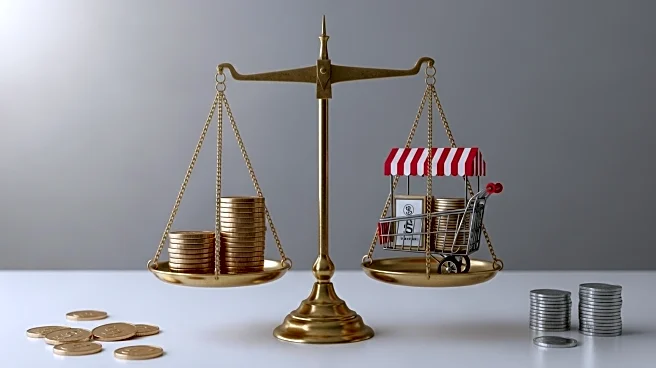What is the story about?
What's Happening?
Political campaigns across the United States are under scrutiny for failing to pay vendors and service providers. Jason Ross, a digital advertising consultant, shared his experience of waiting months for payment from a campaign that ultimately lost. This issue is not isolated, as campaigns from President Trump to Hillary Clinton have reportedly left bills unpaid, affecting cities and small businesses. The problem arises from the transient nature of campaigns, which often dissolve quickly after elections, leaving vendors without recourse for unpaid debts.
Why It's Important?
The issue of unpaid campaign debts highlights a significant challenge within the political industry, affecting trust and financial stability for vendors and service providers. This pattern undermines the accountability that political candidates often advocate for, impacting the credibility of campaigns. The lack of reliable data on unpaid debts suggests a need for reform, potentially involving escrow accounts or mandatory financial disclosures. Addressing this issue could improve transparency and fairness in political campaign operations, benefiting both vendors and the broader political ecosystem.
What's Next?
Potential reforms could include changes to Federal Election Commission regulations, requiring campaigns to secure vendor payments before major expenditures. States might implement financial disclosure rules to make outstanding debts public. Additionally, donors and party committees could condition future support on candidates with a history of paying their bills. These measures could help ensure fairness and accountability in political campaigns, protecting vendors and enhancing the integrity of the political process.















